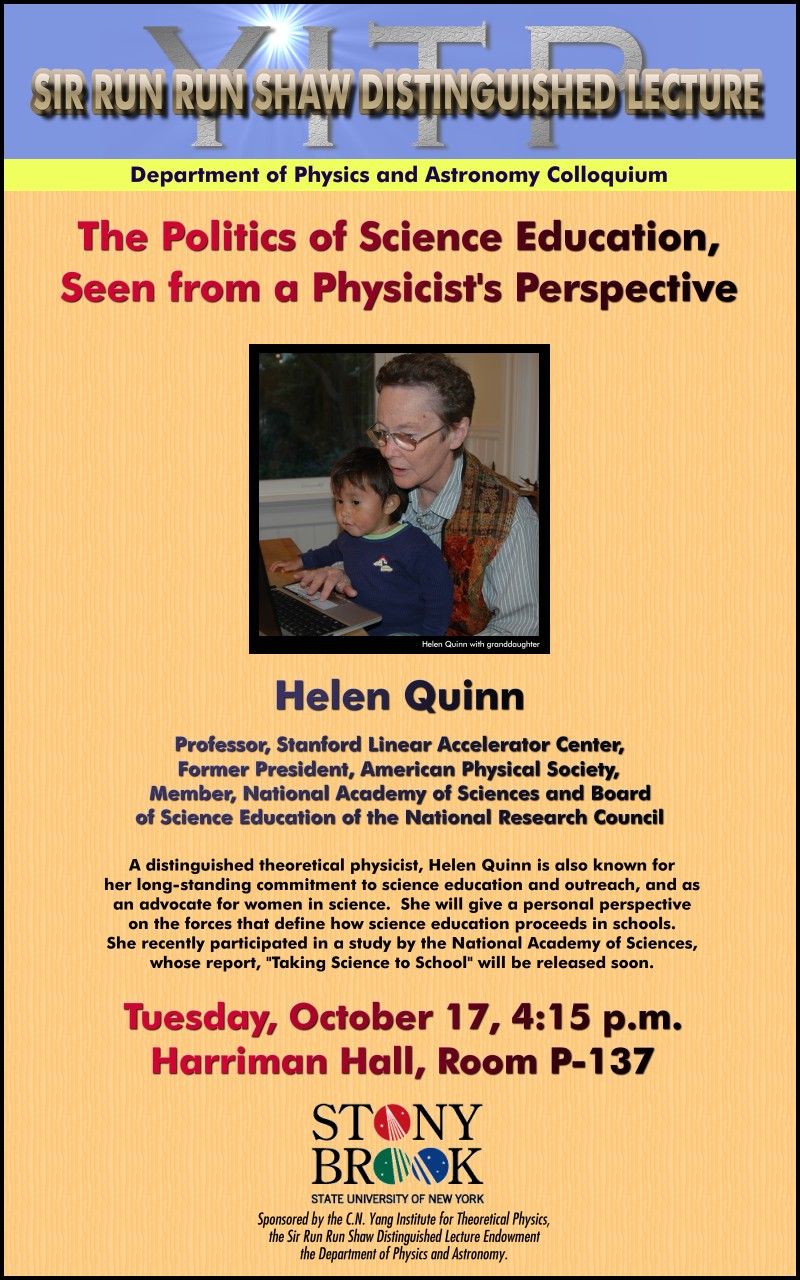The politics of science education, seen from a physicist's perspective[PowerPoint] [PDF]What are the forces that define how science education proceeds in your schools? How does the interplay of Federal, State and Local control over aspects of education work, particularly in the realm of science education? Who else plays a major role? If you wanted to improve science education nationally or locally what levers could you push? As a scientist with a strong interest in science education I have been trying to answer these questions for myself for some years. Among other efforts, I was deeply involved in the process that led to the California Science Standards. I also recently participated in a study by the National Academy whose report "Taking Science to School" will shortly be released. This talk is built from all my experiences, and gives a personal perspective. HELEN QUINN After beginning her Unviersity studies in Melbourne, Australia, Helen Quinn moved with her family to the US and went on to study physics at Stanford University, where she earned her bachelor's, master's and doctoral degrees, and where she now serves as a Professor at the Stanford Linear Accelerator Center. In between, she has held positions at the Deutsche Elektronen-Synchrotron (DESY) in Germany, at Harvard University. She also took education courses and was a student teacher at a high school in the Boston area. A theoretical physicist, Dr. Quinn is renowned for pioneering work in the quest for the unification of the known elementary particles and forces in Nature, and on the relations between matter and antimatter in the Universe. She is also widely known for her long-standing commitment to science education and outreach, and as an advocate for women in science. Dr. Quinn is a Fellow of the American Physical Society and was elected to be its President for 2004. Early in her career she was an Alfred P. Sloan Research Fellow; in 2000 she was awarded a Dirac Medal and Prize by the Abdus Salam Center for Theoretical Physics for her contributions to theoretical physics. She is a member of the National Academy of Arts and Sciences and of the National Academy of Sciences. She is a member of the Board on Science Education of the National Research Council. |
